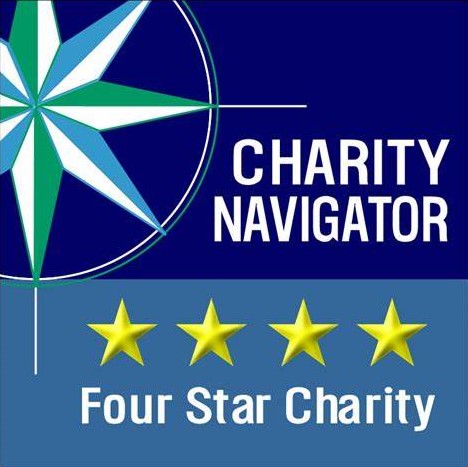By Deborah Pelaez, Marketing and Communications Manager;
Managing Editor of aakpRENALIFE
If you have been involved with AAKP for a while and attended any of our events, you may have met AAKP Ambassador (and former Board of Directors member) Dave White. Dave, also known as, “Kidney Warrior” or “Push-Up Dave” has shared his story at many AAKP events, including the 2018 National Patient Meeting where I heard his story for the first time. Dave learned that his kidneys were no longer working during a 2009 emergency room visit. Before he ultimately received a kidney transplant in 2015, Dave was on dialysis for almost six years. During that time, he received in-center as well as nocturnal in-center hemodialysis, and did peritoneal dialysis (PD) at home for a year. This article focuses on the two years he spent on nocturnal dialysis and includes comments from Dave’s nephrologist, Dr. Dominic Raj, George Washington University Hospital.
After being diagnosed with kidney failure, Dave spent his first two years of dialysis in-center. Dave says that he needed that time to get himself both physically and mentally straight. Kidney disease had come unexpectedly into his life, and his health had not been a priority. It took Dave a while to refocus and to want to start to engage with his health. Dave says that he eventually decided, “I am going to live, and I am going to live well.” A crucial moment in his journey was a care plan meeting in spring 2010 that addressed his social determinants of health support needs.
Dave started thinking about finding a job again. He knew his current dialysis schedule would make it difficult, so he started talking to his kidney doctor, Dr. Dominic Raj, as well as the other members of his healthcare team, about his dialysis options. At that time in his life, home dialysis was not something Dave was interested in, however nocturnal in-center dialysis sounded like it could be a good fit for him.
Dr. Raj says, “Nocturnal dialysis is not for everyone. I would choose it for patients who are not able to achieve dry weight with four-hour treatment and those who want to be productive during the day, like Dave. It is not an alternative to kidney transplant. The outcomes, perception, and experience in at-home nocturnal vs. in-center nocturnal are different. Also, the patient population in these are different.”
For Dave, nocturnal dialysis began at 7 p.m. and lasted for six hours (instead of the four hours like he had previously done in-center). Dave says that nocturnal dialysis is longer because fluid is removed from your body less quickly, and this is very important because it’s gentler on your body. Your body size will dictate the length of time you would be on dialysis; some individuals in his in- center clinic were on nocturnal dialysis for longer than six hours.
According to Dr. Raj, “We selected patients for in-center nocturnal dialysis either to allow them to keep a day job or continue their education, but also those who had excess inter-dialysis weight gain and large body mass index. Ultrafiltration rates of higher than 13 ml/kg.hr is associated with increased mortality. (NEJM) The middle molecule solute clearance is better (with increased dialysis time), but the impact on outcome till now is unproven.”
During nocturnal dialysis, after all the patients are put on their machines and everyone is settled into their dialysis chairs the lights are dimmed and everyone is expected to be quiet. In fact, Dave says that once he was asked to no longer bring a particular blanket (a marathon blanket) that made too much noise when he moved around. Patients can watch TV or talk quietly on the phone. They are encouraged to wear headphones, earmuffs, and eye masks. At Dave’s facility the dialysis chairs had extra reclining ability and laid back almost all the way. The nighttime staff understands that many people do nocturnal dialysis because they work, and they try not to wake anyone who they know wants to sleep through the shift.
Dave discovered that falling asleep during dialysis would be difficult for him. He would eventually fall asleep, but usually not until his dialysis shift was almost over. He knew that he wanted to make the most of his time on nocturnal dialysis, so he took advantage of the quiet atmosphere to study. He says he read a lot of self-improvement books. He used the app Duolingo and learned some Spanish and German. He also got involved in kidney groups – in fact, he became chair of Quality Insights Renal Network 5’s Patient Advisory Committee (PAC) and was able to participate in its conference calls while dialyzing. When he arrived home at close to 2 a.m. he would eat a meal and finish sleeping. He would often take naps in the afternoons as well.
With his days freed up from dialysis, Dave took advantage of vocational training/rehabilitation services offered by his state. He went on job interviews and was able to book medical appointments, and was able to exercise whenever he wanted to. Dave says that when he did daytime in-center dialysis he generally did not work out on dialysis days.
Dave believes that nocturnal dialysis was a good choice for that phase of his life. Eventually, Dave decided he might want to try a home modality, so he went to a Baxter presentation on peritoneal dialysis. Two patients gave testimonials and answered questions during the presentation, and that made a big difference for Dave. He decided that he was ready to try this type of home dialysis. He also decided that he was ready to get evaluated to get on the kidney transplant waiting list. A year and 10 months after starting PD, Dave was called and received his kidney transplant from a deceased donor. Amazingly, one of the PD patients from the Baxter presentation received the donor’s second kidney, and they remain close friends to this day!
Benefits to Nocturnal Dialysis
Exercise became very important to Dave when he found out he needed to take charge of his health. Finding time to exercise was easiest for Dave when he was on nocturnal dialysis. When he did PD, his exercise “window” was much smaller. During daytime in-center, Dave did not have the desire to work out on dialysis days.
• Self-improvement also became very important to Dave when he accepted he had kidney disease and was going to make the best of this new life. Nocturnal dialysis and its quiet atmosphere gave Dave dedicated time to learn and read at night, while giving him the time to attend vocational training during the day.
• Dr. Raj says benefits to nocturnal dialysis are, “The risk of hospitalization due to volume overload is low. Patients may keep the day job or study. Adequate clearance in large patients.”
Challenges with Nocturnal
Dave says that he did not realize that he may not be able to go to sleep. He thought he would sleep through the entire procedure. Dave says that if this happens to you, be sure to have something to do, 6 hours can be a very long time to sit and do nothing.
• Dave says that even though the dialysis process was slower, he still felt some dialysis “hangover” the next day.
• Dr. Raj said that the challenges to nocturnal dialysis are, “Spending six to eight hours bound to a machine. At home nocturnal is a better experience. (Pierratos A, JASN)”






























